TRANSCRIPTION
What do you remember about San Antonio during your childhood years up until Junior high?
What I can remember, people didn't make very much money, very little money was made. So you had to kind of make it go a long ways. Hamburgers were 5 cents and 10 cents, soda waters I remember were a nickel and 3 cents. Shoe Shine, they used to pay 3 cents and 5 cents. They had a relief program, people used to go in and get whatever they could get a hold of, food and clothing. Nobody had any money so you had to really hustle to get ahead. When I was going to high school, I had to ride the bike, I would ride the bus if the weather was very bad, but usually I would ride my bike all the way to high school.
Do you remember anyone talking about or hearing anything related to WWII?
Yeah, I remember, we were playing outside when I heard people yelling "Extra, Extra Pearl Harbor had been bombed". That was going to put US at war with Japan and they were already at war with Germany. I remember seeing bulletins when we went to the movies of what was going on. I remember seeing a whole bunch of soldiers all over town, you would see them all over. Everybody was going to war and everybody was dressed in uniform and was going to war.
Why did you stop going to school after you graduated Junior High School?
I didn't have the money or the means to keep on going. No money, my mother was the only one that was working and she would give me 50 cents a day for meals. A lot of times I would help at the cafeteria and I would get a free meal so my 50 cents would go a little further. She didn't have any money to send me to high school, so I had to stop going since I didn't have money for the bus, I didn't have money for books or for supplies that I needed so I had to quit. Then I went to look for a job.
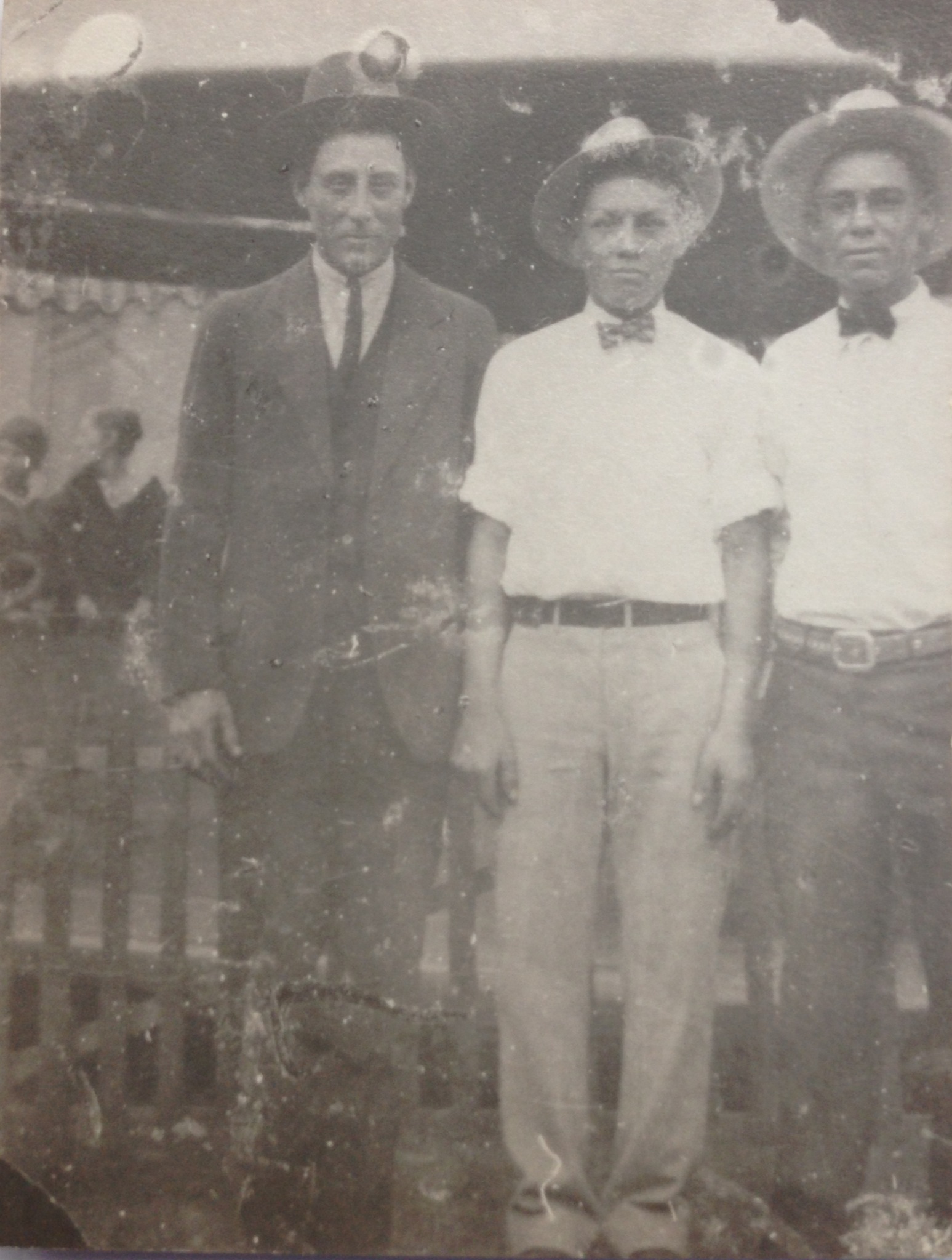
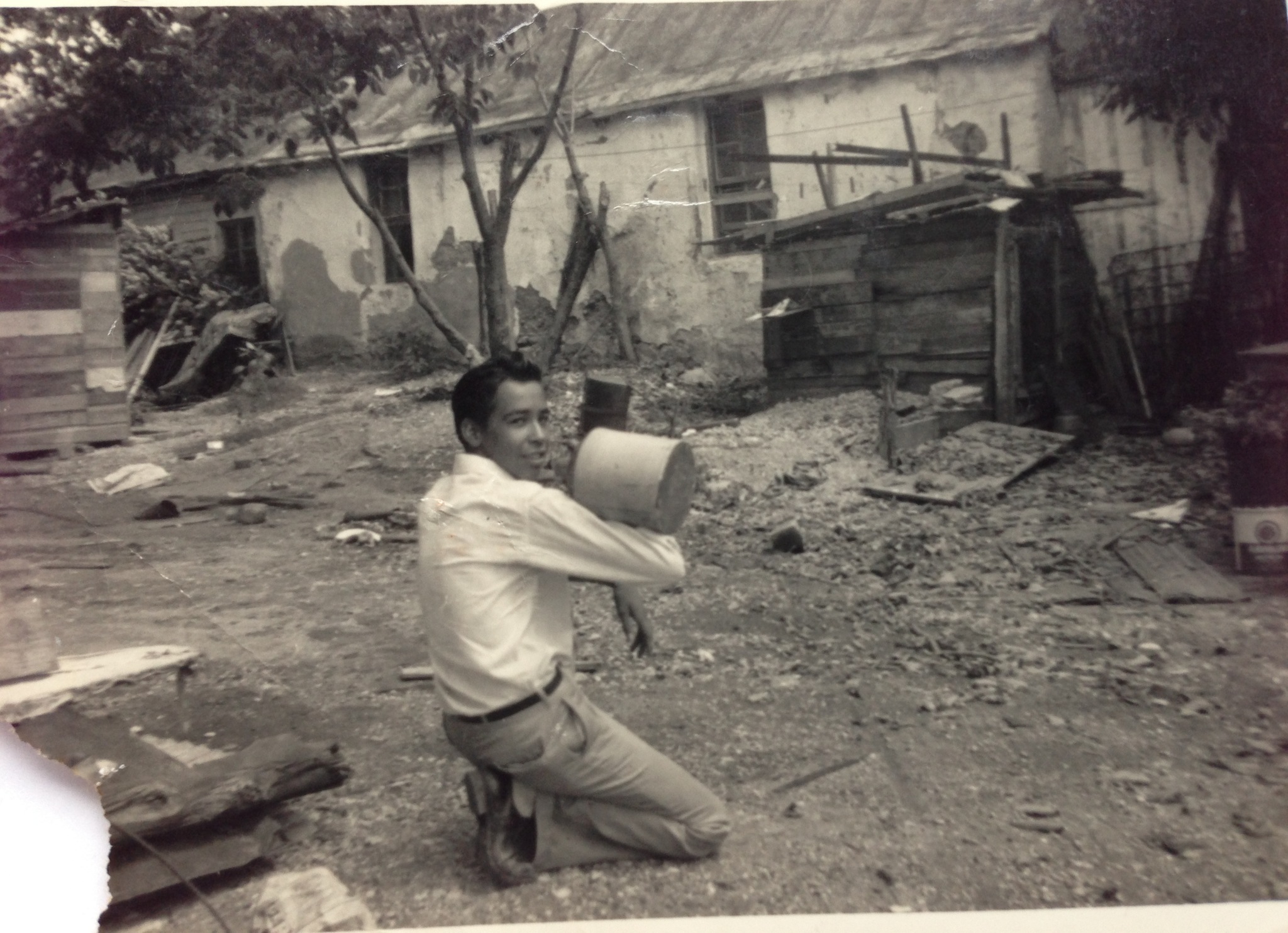
Is that when you started your first job?
The first job that I remember getting was helping a man at a fruit stand. I would help him on Saturday and Sunday and he would give me 50 cents, selling the fruit there. It was something, it wasn't much but it was something. Then every once in a while I would get a job at a bakery, I had to work 3 or 4 days for 50 cents. Every little bit helped. I also used to shine shoes, to shine shoes they would pay 10 cents for a shoe shine and I would get 3 or 4 cents and they would keep the rest. Whatever money I could make would come in handy.
Do you remember when you started working at Kelly and why you started working there?
Before Kelly I worked at Colonial Cake, and I thought I was doing pretty good, they were paying me 35 or 37 cents an hour. They told me I had broke the record there because I had worked for I believe 37 hours without stopping, my relief never showed up so I had to keep on working. When my relief finally came on I went home and went to bed because I had such a toothache. I had this toothache I couldn't get rid of so I didn't show up the next day. They said I didn't have permission to take the day off, so they fired me. I said well that's ok, I'll see if I can find a job some place else. I put in an application for Kelly, for the Police force, for a city bus driver and a Fireman. I waited and waited, finally they all called me at the same time. I had a choice to which one I was going to take, so I decided to try Kelly. So I went to Kelly and I started over there making 50 cents an hour or 75 cents an hour and at that time it was as a laborer. And you had to work 4 weeks before you could get a paycheck.
When you were drafted into the Army, what did you know about the Korean War that was going on?
They didn't want to call it a war, they were calling it a conflict. I knew that a lot of people were being sent over there and they weren't coming back, I mean, because the Chinese got into the conflict and there were a whole bunch of them, they couldn't control them. I remember that General MacArthur at that time he wanted to use the Atomic bomb, to even it up and they didn't let him do it. That's the reason in fact that they fired him on account of that, President Truman fired him and got MacArthur out of there because he didn't want to use the Atomic Bomb. So I was drafted into the Army and I said well that's ok I'll see what I can do, I'll go. So I went and during that time that I was taking my basic training there were a lot of accidents, I Mean a lot of accidents. People were careless, they had people they had picked from the Bayous that had never driven a car, never driven a truck, had never fired a rifle. They were picking from everybody, they just wanted to meet their quota. When I was throwing my hand grenades, I had to wait in line so I was sitting back there, I had already thrown my hand grenades and I was sitting back there and every once in a while they would throw a dud hand grenade. That thing would pop but all you would see is smoke come out of there. So somebody started yelling "AYELA (I-La), AYELA", that means look out. I saw the hand grenade roll almost right in front of me and I said its going to pop and blow that white smoke. It didn't pop, it exploded and the explosion knocked me unconscious and the person was standing right next to me, he was standing up and I was sitting down, I just laid back and he fell on top of me and when I came to they were pulling him away from me and I was all full of blood. I said well it probably got me, the shrapnel got me, but they took me to a field station to check me out and they started pulling all kinds of shrapnel out of my face, my forehead, my arms everywhere they could find shrapnel. They put me in like a, it wasn't a hospital it was like a field station, they put me there for observation, then they took me out of there and sent me to the barracks. But all the time I wanted to find out what happened? How come they threw a live grenade and instead of throwing a dud? Every time I would ask questions, they would come back and say your job is to learn to survive not to be asking questions. They said, we'll find out what happened and let you know. I don't know if they ever did or not, but they never did let me know. But asking the rest of the people, see I didn't know nobody and everybody didn't know nobody and they didn't want you to make a buddy with nobody else. Nobody ever did tell me, but after the incident at night, I would have all kinds of nightmares I would see the live grenade come rolling and I would start talking and would start wrestling away trying to get away from the live grenade. So they started to isolate me, they would keep me away from the rest of the troops, so I could sleep in a separate place so the rest of them would get some sleep. And they would say, we don't mind him talking, but tell him to talk in English, he's talking in Spanish and we don't know what he's saying, so that's what the main problem was <Laughter>. That kept on and all the time I was in the service they never told me exactly what happened until later on, when I got married and when I got out of the service, every night I would have the same thing, nightmares, one right after another after another. Now that I got old and went to the VA for medical health, I told them about those dreams and he said no you need to be checked out. He said what did they tell you when that happened, I told him they told me not to talk about it and eventually it will go away. The psychiatrist that saw me at the VA said that's the worst thing they could've told you, you need to let it out. So they wired me up and they did something like hypnotized me and asked me a whole bunch of questions and I answered them. Then they sent me to a sleep study and during the sleep study they listened to it and they said that you don't sleep, during the night when you think you're asleep you're not asleep. Because you have these nightmares, so your body doesn't rest, so they recommended this
CPAP Mask and you breathe nothing but moist air. When they put that on then I could get some sleep and I noticed I could get more strength out of myself the next day. I've been using that ever since and when I use it, it works good I have a lot of strength and I feel rested. But if I have a cough or runny nose I cant use that mask, so those days I have to go through the same thing with the nightmares and wrestle and talk and the next day I feel run down. As far as the mask is concerned it works good, I put it on, I feel very rested and I can really get a lot of things done, if I don't then I keep dosing off every once in a while if I'm not active, I just keep dosing off because I need more sleep that I don't have.
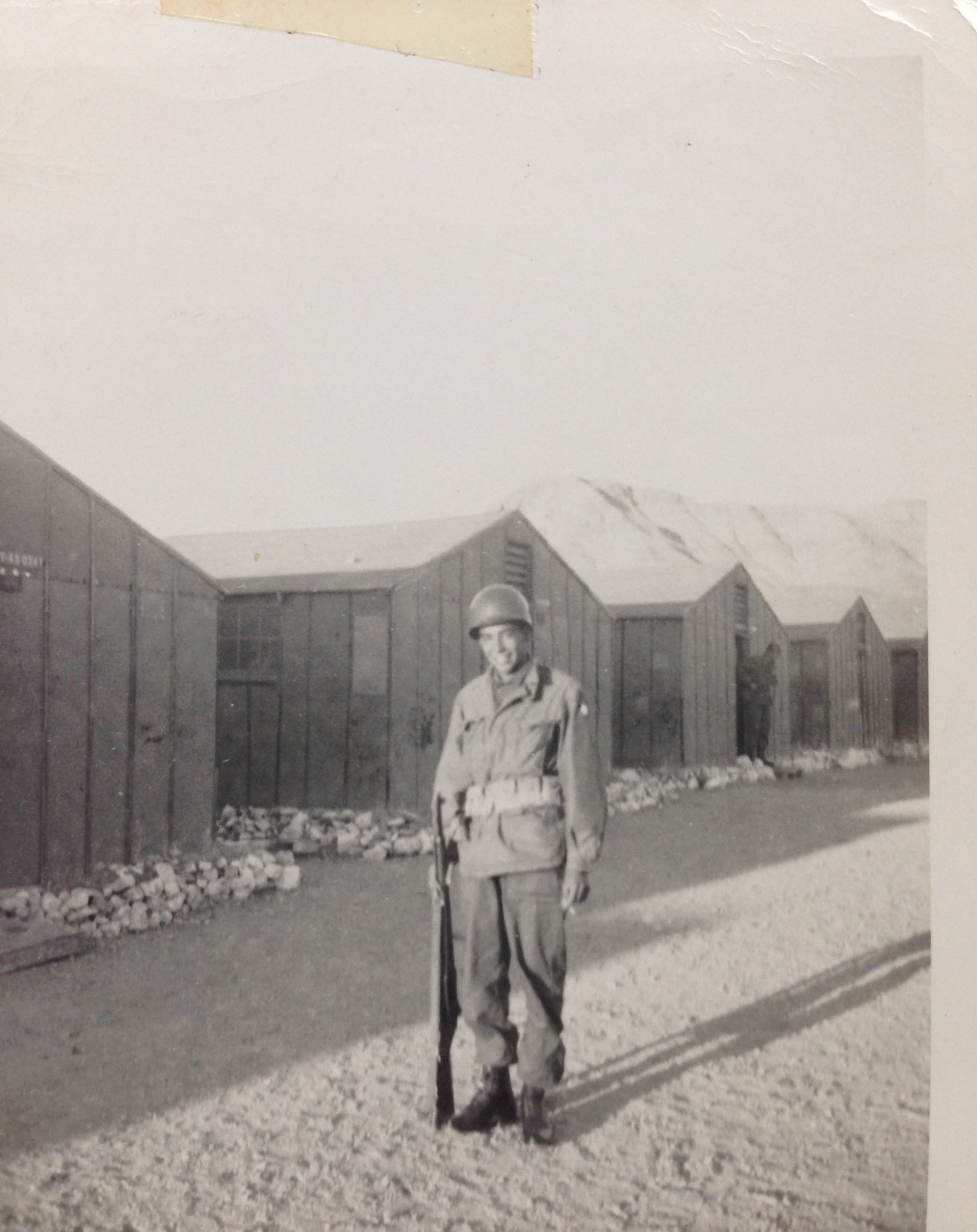
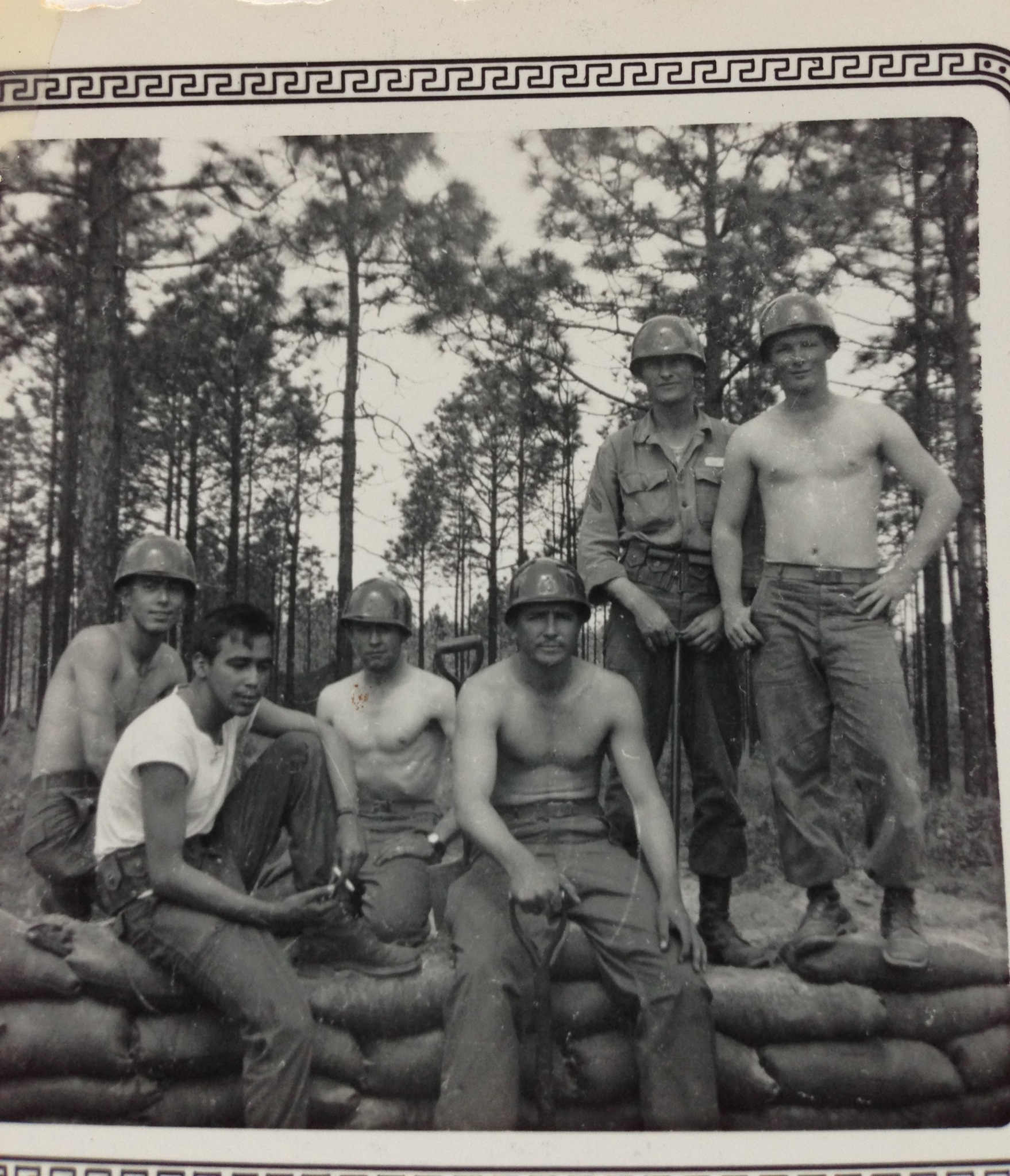
After that happened at basic training, what did you end up doing while in the Army? You didn't have to go overseas right?
No, ok I didn't find this out until later, see you didn't know who was going overseas and who wasn't. They had some form of finding out what kind of schooling you had, and they used to call it an IQ test, Intelligent Qualification test. They would give you the test and according to the score that you made was what they were going to do with you. I must have done pretty good on that test because I ended up in Guided Missiles. Out of the 2 years that I was in the service, I would say 18 months of that was nothing but schooling in Guided Missiles and how to shoot. The missiles that they put me on was a Corporal and had a range of about 500 miles. My job was to set it up, me and about 4 or 5 other guys was to set up the launching pad and set up the missile. After we got threw with the schooling and we fired the missile, we were the first high school kids that fired a missile without high intelligent people there. So we fired the missile without any problem at all. After that they gave me hell, they wanted me to re-up because I was only going to be there for 2 years. They wanted me to re-up, I was a PFC, Private first-class, and they promised me Sergeant Stripes in 2 months if I would re-up. But at the time that I was in the service, I was making less than a dollar a day. My check at the end of the month was something like, 28 or 29 dollars for the whole month. And out of that money I had to buy all my shaving gear, cigarettes if I wanted to smoke, and send a little bit home, so I said no, there is no way I can do it. So I would pick up extra jobs while I was in the service, I would take their clothes to the cleaners, shine shoes, whatever they needed I would do it for extra money that way I would have a little money to come home. So I said no, there is no way and I had my job waiting at Kelly and at Kelly I was getting something like 80 or 90 cents an hour. And that was a lot more than the service was paying me. So I told them there is no way I can re-up but they kept putting a lot of pressure on me and I had only about maybe 2 or 3 months to go. So they wouldn't send me to school anymore, they would send me on special detail like driving a semi-trailer going from Fort Bliss to Seattle, Washington. I didn't know if we were taking missiles or bringing missiles cause it was a closed container and we would go on convoy 3 or 4 trucks at a time. After that they would find another detail for me, put me some place else, driving for a Captain or driving for somebody else but always a special detail and put more pressure on me to re-up and re-up and I said no. I wasn't going to re-up because I couldn't see a future in this, even the Sergeants pay at that time was maybe about 1.50 or 1.75 an hour and out of that you had to dress up extra sharp so the other ones can match up to you and I said no I cant re-up. So finally they let me out of the service and at that same time Kelly was letting go of all the people who were non-veterans. They were trimming down their workload. But when I was in the service, they sent me a letter since I didn't give them 30 days notice I didn't have a right to my job. Well I took that letter to Headquarters Battery and showed them the letter and showed my draft notice and they only gave me about 18 days to get ready not 30 days but 18 days. One of the officers at Headquarters Battery said I'll take care of
it and I don't know what he did, but they sent me an apology from Kelly that they had made a mistake and I had every right to my job, so I knew I had my job back. When I came back from the service, they were letting a lot of people go I had a better chance of getting ahead. Since I knew part of the job already it gave me a chance of getting ahead and getting more money. I never had any intent to stay in the service because I couldn't see no future in it. Most of the people that went over there never came back from Korea. Like I said, later on I found out that the Learning Ability test is the one that kept me here. I asked the ones that went over there and came back he said no I didn't care about it, I didn't do anything with it, the hell with it, and they didn't even try. That's what determined whether you get a good position or bad position, whether you're going to get some schooling or they are just going to put you in the front line. That helped a lot and when I went to Kelly they did the same thing. They were trimming everybody out and let go of a whole bunch of people, at Kelly they used to call it a LA, Learning Ability, test. When I took the LA, I took all my time and tried to do as high a grade as I could. I ended up doing better scores than the people that had high school, better scores than the people that had college, better scores than people who had worked there for a long time. So, I made a lot of enemies over there at Kelly, "How come he made such a high grade and we didn't make anything and he said well I don't know you tell me". And then he said, no he was probably just guessing at it and guessed at the right questions. He said they outta make him take it again and they put so much pressure on the supervisor, he said would you like to take it again? I said, yeah I'll take it again. So the first time I made something like a 37 over something, the second time I took it I made like 60 over something. A whole lot better than the first time <Laughter>. So the supervisor said no you don't have to take it anymore, that's enough. But, the openings were not available, every time there was an opening there were about 5-10 people for that one opening, so they would pick the ones they wanted. So finally, they ran out of people of who to pick, so they had to give me the grade, once they gave me the grade that's all I needed. My motto was, get to work early and stay late. Do the job a lot better than the person that was teaching you how to do it. They noticed that, the supervisor kept noticing so every time there was an opening they would push me forward and push me forward and this kept getting me promotion after promotion. In a way I didn't like it because I would work so hard to do the job so good and make it easier, by the time I got to that point they would push me up to another and I had to start all over again. Any way it worked, it worked for me.
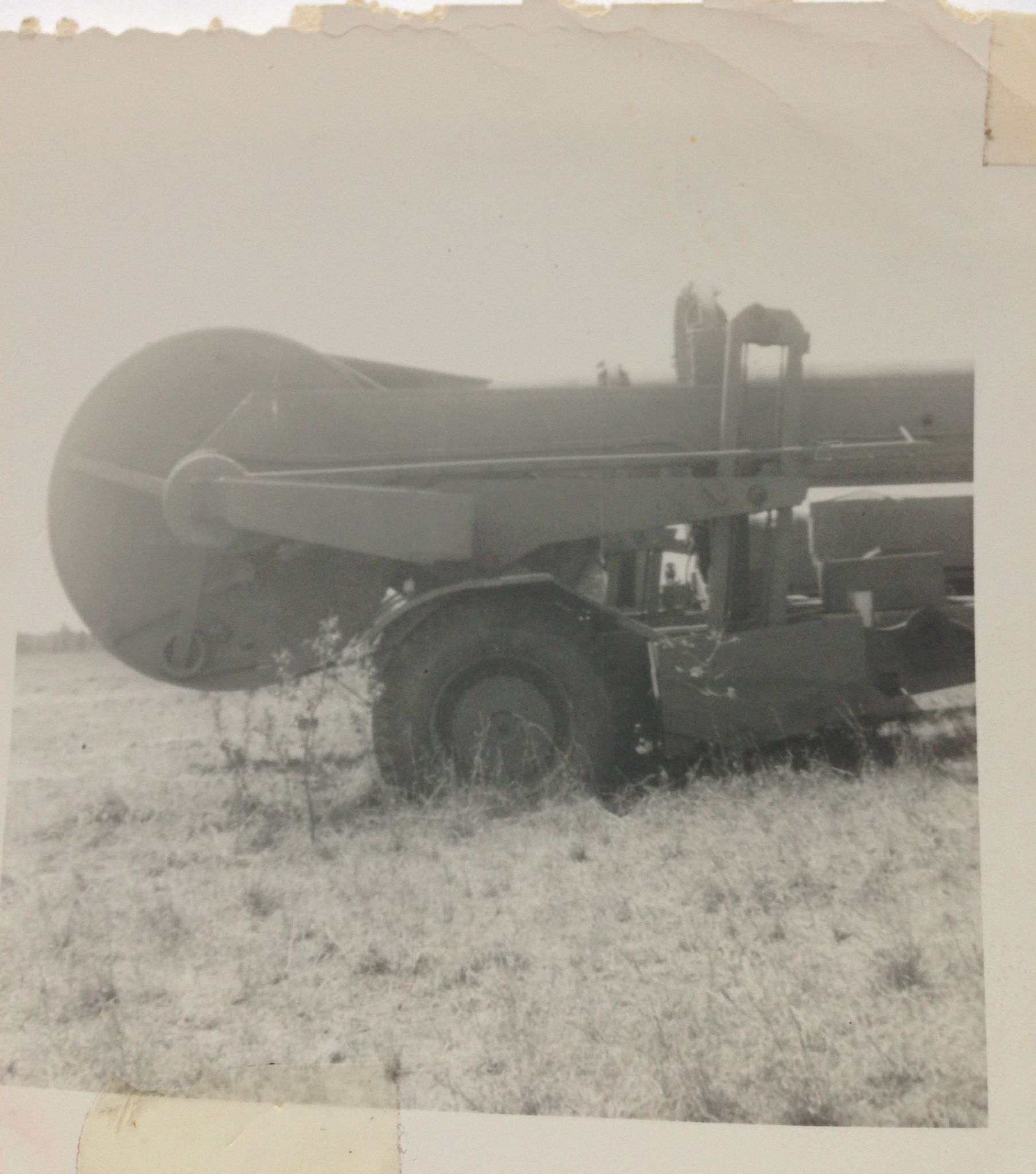
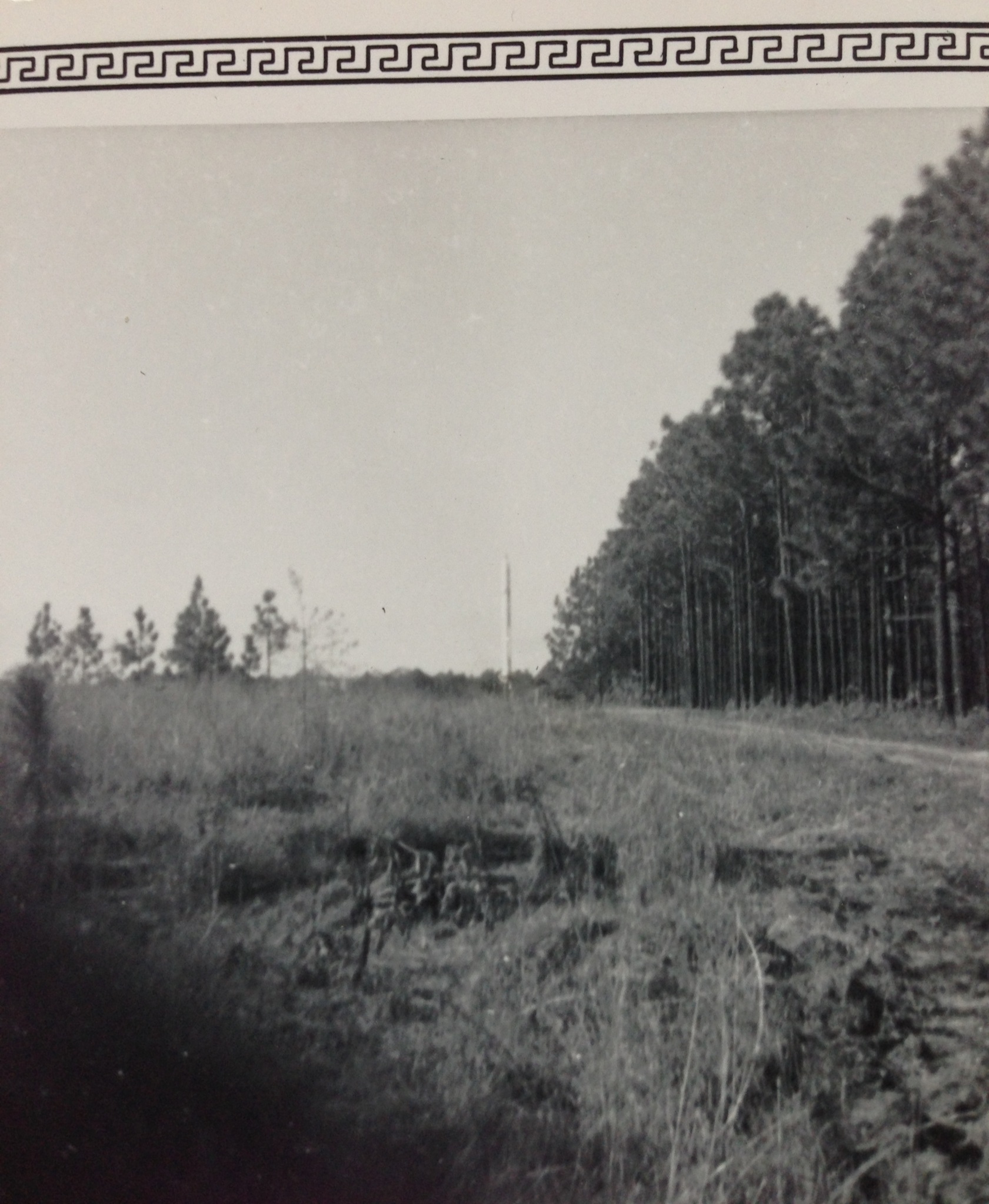
Wow….overall though, what was the environment like working there? Did you really like working there or was it just a job?
I liked it a lot because I was learning things that I didn't know before. I was learning things that I had never been exposed to. They kept telling me one thing that I will never forget; Save your sick leave because you made need it later on. I got to the point that I saved over 3000 hours of sick leave. At the end of my career when I started getting sick that I couldn't take the pain anymore, I started trying to take my sick leave and he said No. No, we need that sick leave so we can get a feather in our cap, you know we have an employee with over 3000 hours of sick leave. I said, well wait a minute, I saved my sick leave for my personal use not for your use for my personal use and now your telling me I cant take it. He said that's right you can't take and I said well we'll see about that. So what they did, they cut off my pay completely. So I said well, let me see what I can do, so I went to the union and told them here is a record of my sick leave and here is a letter that they sent me, that I was a sick leave abuser. He said, well sign here and we will talk for you, but you may lose your retirement all together, but if you sign here we will go out and fight for you. So I went ahead and signed and took a chance, and they went and fought for me. I got all that sick leave that they wouldn't pay me, I got that money back, I got an apology from my immediate supervisor all the way to about 3 or 4 steps higher than him. Not only did I get an apology, they lowered all their grades down on account of what they did was wrong. They quit and I got them out of there, and I don't
know if they are still doing that or not, but they tried to do it to me and it didn't work with me. I was able to retire and got all my sick leave, all the hours they took away from me they had to give it back to me. It paid off for me. I was a work leader there and I was working with my crew and my immediate supervisor and his supervisor and the other one on top of him came over to talk to me one day. They said, we came to apologize to you, I said wait a minute, my hearing is not that good, my hearing is real bad. So I stopped everybody from working, " I want you all to stop working and listen to this". He said no we only wanted to talk to you, I said no, they are my workers and they have a right to hear this because I've been telling them what they told me, to save their sick leave you may need it later on, So I want them to hear this. Boy, they got red in the face and they had to tell them one by one had to apologize. They told me, I'm sorry we were wrong and now we're going to have to pay for it, is there anything else you want us to do. I said no, that was good enough. The union kept begging me to go for money, monetary value to fine the hell out of them and charge them as much money as they could for what they had done. I said no, I'm on my way out, I don't care what happens with that. About 3 or 4 supervisors up the line, they loved their position and they didn't want to take a cut so they had to go out and they took a hell of a pay cut. But they asked for it. At a meeting with the union, they all said the same thing, this has been a normal trend, this is what we do all the time with every body. Why not him? Well that was wrong, the guy that supervise the meeting said, ok with what they said right now he has already won the case and you lost the case, this should have never been a regular way of doing things. We kept preaching the same thing; save your sick leave you may need it one day and he needed it. He said well the doctor wouldn't commit themselves and I said well the doctor didn't know what was wrong with me. I had a degeneration of column 4 on the back of my neck that was giving me a lot of pain and they couldn't control the pain. They wanted to do surgery but they wouldn't guarantee that I would have any use of my limbs and I cant do that, I'll go for a second or third opinion before I do that. They wanted me to bring a letter from the doctor saying I could do my work, the doctor wouldn't do it. When I went to the VA, they said not only are they wrong, but we have ways of telling how much pain he is going through. So they wired me up, all my head, arms, everything and the more pain you have the higher the pitch of the sound on the machine when they wired me up that sound was way up there. They sent a special letter to Kelly, telling them that the man is in a lot of pain and we can't give him any more pain killers because he is taking too many already. The pain killer that will take the pain away will take your life away, it will kill you. So we are going to send him to self hypnosis, if he learns how to perform self hypnosis he wont need a pain killer anymore. They didn't like that at all at Kelly because I had a special letter from the VA, when I took them the letter; he said well what else can we do. I told them you can't do anything because I only got about 2 more months to go, then I'll be retired. So I took everything and started filing my way, but I wonder how many people they did that to, that lost their sick leave, they couldn't take their sick leave. Because if you had an employee with 3000 hours of sick leave that was a feather in the cap, that would give you a right for a promotion because you kept that employee there. That's Wrong, that employee's sick leave is his not theirs. I fought them and I won the case, I came pretty close to losing my job and losing all my retirement but I'll take that chance. It worked real good.

Do you remember what was going on during the Cuban Missile crisis here in town?
The Cuban missile crisis, yeah, I was working at Kelly at that time and we had to work 24 hours, 12 hours a day, 7 days a week during the crisis. We didn't know if Russia was going to keep on coming with the missiles or they were going to turn them back. We had to stay ready, we worked 7 days a week, 12 hours a day, we didn't know if were going or coming because we were so tired.
Did the family here, take any type of special precautions or anything like that, in case of war?
Yeah, we were assigned to a special crew and since my job was driving a pickup and getting information, the data from the airplanes. I was instructed that in case of emergency, my job was to go straight to Hondo, report at Hondo, take my pickup and everything and report straight over there. Don't go pick up the family, don't do anything except go straight over there. That was my instructions at that time.
What about for grandma and mom, they didn't say anything for them?
Nope, they said if you get special instructions, they probably won't be around. The missile will be falling and they'll probably be dead, it will probably kill them. So I said, well I got to do what I got to do.


Looking back now, do you think the US over reacted to what the Russians were doing?
Well, yeah, I believe they over reacted because the missiles were going to be stationed in Cuba and its about 150 miles from Florida, from there they could hear every base
in the United States. I believe they did the right thing, keep them away as far away as they could, But then again you never know what might of happened.
Well, right after that, the next thing was going into space, do you remember watching the moon landing with Neil Armstrong?
Yeah, I remember watching the moon landing. <Smiles>
Was there a lot of excitement here in town?
Well, the reaction that I got the most in the people that were watching was that they didn't thought it was real. They thought somebody was pulling a trick on them because nobody knew what was up there, nobody knew and they kept showing. How come they show these pictures and they see this person land on the moon. That was the reaction we got from most of them and not many people had televisions at that time.
Did you think it was fake? Landing on the moon?
It looked kind of fakey to me, but then again I didn't know too much about these special cameras that they have now. And if it was fake, by now we would've had known for sure that it was fake, but so far it looked pretty real. And the way they did it you know.
After your retirement from Kelly, you travelled quite a bit with Grandma. What has been your favorite place to visit?
I would say, Yellowstone is one of my favorite places. Vancouver, Columbia Island in Canada, and Alaska, We got to go to Hawaii too, that was nice too and I've enjoyed all those places where we went to. Orlando city, I've enjoyed every place we went to.
When we went to Hawaii and we went to go visit Pearl Harbor, did that bring around a full circle from when it first started?
Yeah, I remember when we were watching the movie there at Pearl Harbor, every time they would hit an American Ship I could hear a lot of clapping, but the room was so dark I didn't know who was making all that clapping. Every time they would down an American plane a lot of clapping. I said who's doing all that
clapping and when the lights came on, I looked around and I was sitting around nothing but Japanese.
<Laughter> The audience was nothing but Japanese, they were doing all the clapping. <Laughter>
Is there any words of wisdom you would like to give young people today, looking at all the experiences that you've gone through?
Well, I would say, do the best you can. You've got to follow their instructions, but the way to get ahead of the game this is the way I look at it; You go into a job not knowing anything about the job, listen to what they are going to say to you. Once you listen to what they say to you and show you what they know, then you're ahead of the game. You know all they know, plus whatever thing you do to make it better. So you're ahead of the game and once they realize that, this is what's gonna push you to the next level. And it will work every time.
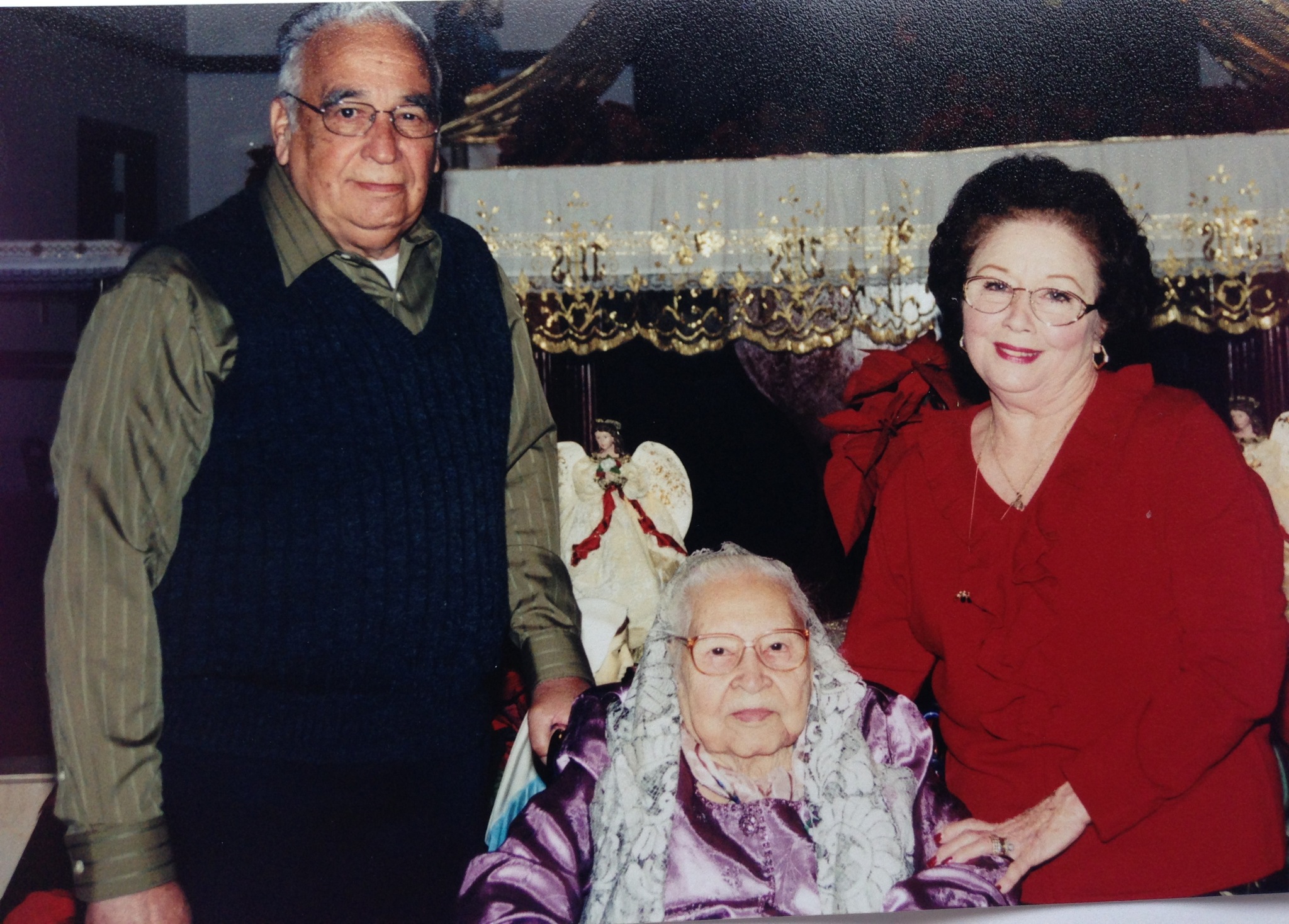
Is there anything you would like to add to this interview that I didn't touch on or maybe we didn't get to talk about?
No, not really, not really, I never...Since I didn't have too much money I never had ambition for something that I couldn't afford. Whatever I had is the only thing I could afford and that was good enough for me.
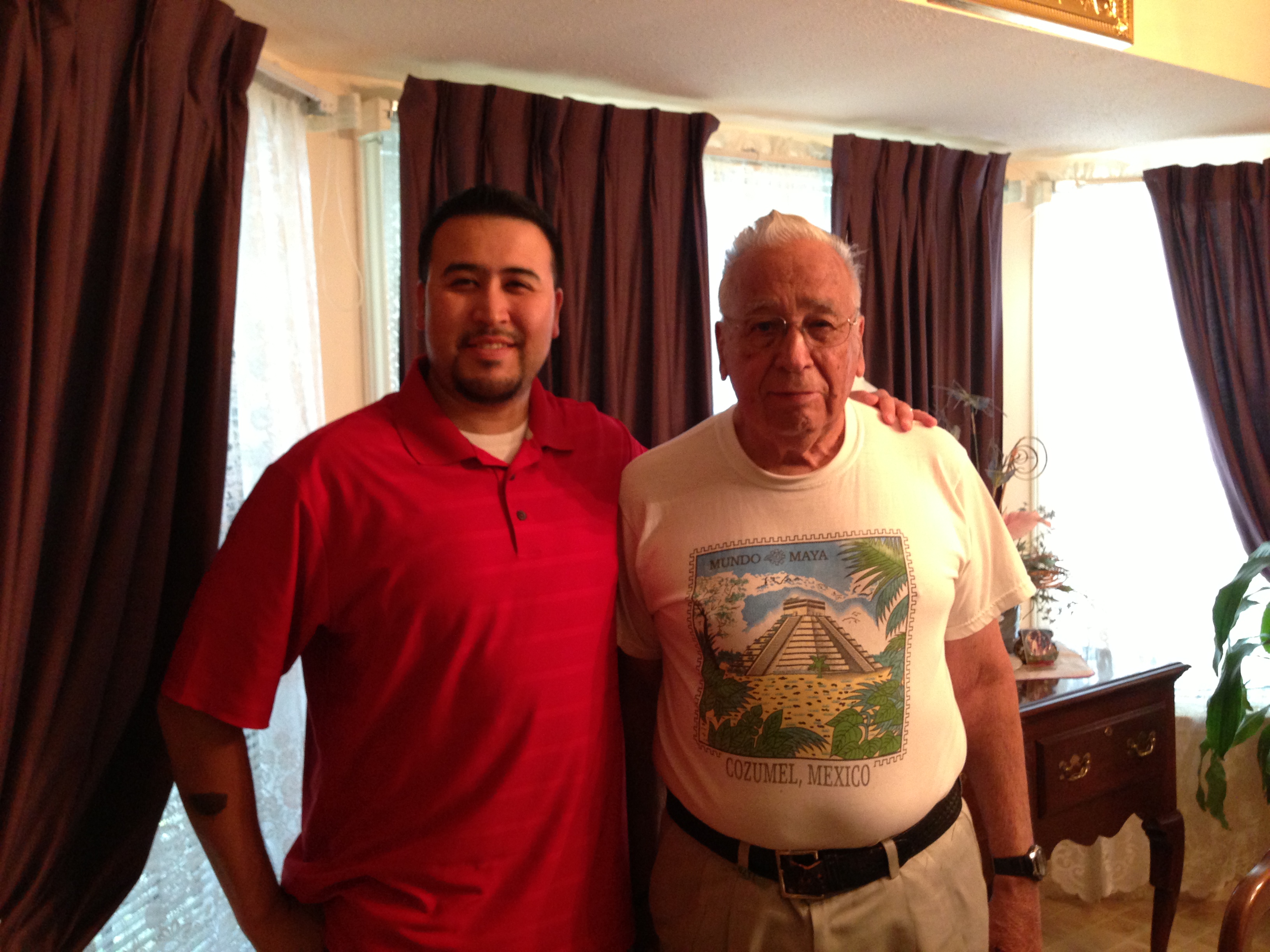
ANALYSIS
In having the opportunity to interview my grandfather, I was able to better understand now why he would say certain things to me growing up. Giving his advice fell on deaf ears growing up, but now it all makes sense. I was happy to be able to know what he has gone through that has made him the man he is today. From the grenade exploding in front of him, to being one of the youngest to have the responsibility of setting up and firing an atomic
missile. Listening to how he never let anyone treat him unfair and if they were, he did not back down
from making it right. Learning about how although he did not have the highest
education, he was still able to work his way up the ladder at Kelly. It
was especially interesting to hear about the special instructions given during
the Cuban Missile crisis, in which he had to leave the family. Most importantly, hearing how much he enjoys telling his story has been the most enjoyable part of this interview.
I am very happy that I was able to conduct this oral history interview as I have
now learned about my grandfather from his own words.
TIMELINE
- Samuel Guzman Gonzalez, born December 6th 1932 to Narsario Buentello Gonzalez and Margarita Gomez Guzman
- Attended Navarro and Sam Houston Elementary and Graduated from Harris Junior High School
- 1951 began working at Kelly Air Force Base in the warehouse
- 1952 Drafted into the US Army
- December 6th 1952 married Mary Helen Bustillo
- In the Army held the occupation of Missile Launcher, during time of Korean War
- 1955 Honorably Discharged from Army and went back to work at Kelly
- Daughter Mary Dolores was born
- 1988 Retired from Kelly
- Enjoying retirement by traveling to places such as Alaska, Mexico City and Yellowstone National Park
ANNOTATED BIBLIOGRAPHY
List a minimum of FIVE sources. There must be links to each of the sources within the transcription.
Here are three examples of annotated sources plus a source for photos/documents.
St. Phillip's College
is a part of the Alamo community college and specializing in multiple trade and
technical programs.
Kelly Air Force base
former
United States Air Force facility located in
San
Antonio, Texas.
Pearl Harbor
Location where Japanese bombed US Naval battleships and essentially solidified
the US's involvement in WWII.
Korean War
On June 25, 1950, the
Korean War began when some 75,000 soldiers from the North Korean People’s Army
poured across the 38th parallel, the boundary between the Soviet-backed
Democratic People’s Republic of Korea to the north and the pro-Western Republic
of Korea to the south. This invasion was the first military action of the Cold
War.
General MacArthur
General Douglas MacArthur is perhaps best known for his participation in the
Korean War, his military service actually began a half-century earlier. In fact,
his was one of the longest and most controversial careers of any American
military officer.
CPAP Mask
the use of continuous positive pressure to maintain a continuous level of
positive airway pressure.
Corporal
the Corporal, America's first operational guided missile
Flash Burn
Documentary on the Military Exercise "Flash Burn"
Photographs and/or documents on this website were provided by Samuel Gonzalez
and Mary Helen Gonzalez.
http://youtu.be/L15xWJxaBEc
Return to Oral History Projects

